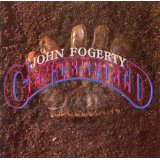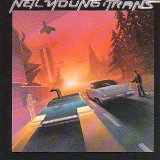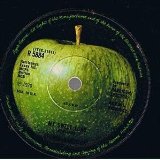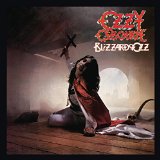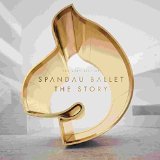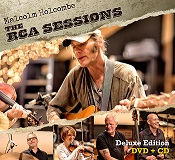 OK, let me say this right up front; this album isn’t for everyone, but you could say that about Tom Waits, Neil Young and Bob Dylan and it hasn’t done them any harm. Malcolm Holcombe’s voice is an acquired taste but if you already have a taste for anyone mentioned above then it wouldn’t take a lot of acquisition. It’s the voice of a man who’s lived a life and seen a lot of dark sides; it’s the voice of a man who gargles with gravel, spits sparks and tells stories of how life is, not how you think it should be. His music has roots in blues, folk and country but it’s not really any of these; it’s a strand of Americana which weaves in all of these influences without falling neatly into any of them.
OK, let me say this right up front; this album isn’t for everyone, but you could say that about Tom Waits, Neil Young and Bob Dylan and it hasn’t done them any harm. Malcolm Holcombe’s voice is an acquired taste but if you already have a taste for anyone mentioned above then it wouldn’t take a lot of acquisition. It’s the voice of a man who’s lived a life and seen a lot of dark sides; it’s the voice of a man who gargles with gravel, spits sparks and tells stories of how life is, not how you think it should be. His music has roots in blues, folk and country but it’s not really any of these; it’s a strand of Americana which weaves in all of these influences without falling neatly into any of them.
“The RCA Sessions” is a retrospective with a difference. Malcolm Holcombe has picked out sixteen songs from the period 1994-2014 and re-recorded the lot live in the RCA Studios in Nashville, while filming the process for a CD/DVD package. The band for the sessions was Jared Tyler (dobro, electric guitar, lap steel and vocals), Dave Roe (upright bass and arco), Tammy Rogers (fiddle, mandolin and vocals), Ken Coomer (drums and percussion) Jelly Roll Johnson (harmonica) and Siobhan Maher-Kennedy (vocals), all regular contributors to Malcolm’s work, plus Maura O’Connell who duets on the final track, “A Far Cry from Here”.
This collection weaves its way through various instrumental settings, from the intimate Malcolm Holcombe/Jared Tyler configuration on “Doncha Miss that Water” (with a hint of Jackson Browne and David Lindley) to the full country band sound of “My Ol’ Radio”, the riff-based country rock of “To Drink the Rain” and the two songs featuring Jelly Roll Johnson’s harmonica, “Mister in Morgantown” and “Mouth Harp Man”.
There’s a melancholy lyrical feel to most of the album, from the mournful mood of “The Empty Jar” to the world-weary nostalgia of “Early Mornin’” and “Goin’ Home”. There’s a bit of social comment (“Down the River”) and even a parable (“I Call the Shots”), showing a wide range of subjects and lyrical styles. The imagery is never ornate or flowery; this is the poetry of everyday (and sometimes bone-grindingly hard) life; warts ‘n’ all with no airbrushing, but also incredibly powerful, honest and moving.
The songs on “The RCA Sessions”, selected from the work of twenty years, are strong, potent and evocative and paint a picture of someone who’s lived a life and just managed to survive it. At times you feel he squeezes so much of himself into the songs, you wonder if he can make it to the bridge, never mind to the end of the song, but you could often say that about Neil Young, Tom Waits and Bob Dylan as well. Anyway, Lucinda Williams and Justin Townes Earle are fans and I’m sure their recommendation counts for a lot more than mine.
“The RCA Sessions” is out on June 22 on Singular Recordings/Gypsy Eyes Music.
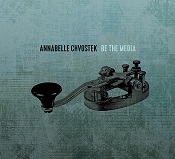 If you’re after an album that’s safe and unpredictable and you know exactly what’s coming next, then “Be the Media” is definitely not the album for you. Annabelle Chvostek’s fifth solo album moves away from the folky sound of her two previous albums “Rise” and “Resilience” to a sound that is lo-fi and embraces styles from indie thrash to psychedelia with several stops and detours on the way. It’s fair to say that with this album, you never know what’s coming next. Annabelle’s roots are in Canada, which may go some way to explaining the affinity to and parallels with Neil Young, who’s also had the odd change of direction along the way.
If you’re after an album that’s safe and unpredictable and you know exactly what’s coming next, then “Be the Media” is definitely not the album for you. Annabelle Chvostek’s fifth solo album moves away from the folky sound of her two previous albums “Rise” and “Resilience” to a sound that is lo-fi and embraces styles from indie thrash to psychedelia with several stops and detours on the way. It’s fair to say that with this album, you never know what’s coming next. Annabelle’s roots are in Canada, which may go some way to explaining the affinity to and parallels with Neil Young, who’s also had the odd change of direction along the way.
The album is built around live-band recordings with some overdubs added later and the raw, Stooges-like, power of the title song gives some idea of the direction the album’s taking, but there are still plenty of surprises to come. “Jerusalem” is mournful lyrically and musically with the added melancholy of some Middle-Eastern violin to season the mixture. “Black Hole” sets the controls for the heart of the sun with the simple, if bleak, message that we’re all irrelevant compared to the vastness of the universe, delivered over a soundscape that’s part early Pink Floyd and part Neil Young’s “Like a Hurricane”; it’s certainly dramatic. “This Night” is the closest the album comes to a love song, if you count ‘Your hand is the hand I hold to jump out of the burning tower’ as a lyric. Powerful yes: cheerful no.
“Carnal Delights” is the perfect example of the albums’s twist and turns. From a doom-laden minor key verse, the song bursts into chorus in 3/4 time that’s straight out of a sleazy 1930s cabaret routine; and yes, that is someone playing a saw (Lisa Gamble, actually). It’s an odd one, but the contrast works perfectly. “You Can Come Now” is probably closest to Annabelle’s earlier work with gentle electric guitar and a vocal that isn’t pushing at the edges her voice’s power; it’s very different from the songs it’s surrounded by. As if to cement the Shakey connection, there’s a stripped-back cover of “Like a Hurricane” featuring mainly mandolin and piano with a touch of guitar. It’s very different and it works.
“Inside the Scream/Screen” returns to the spiky guitars and claustrophobic technophobia of the title track before another change of pace to “Say it Right” which has a hint of Television-styled guitars and the album’s only example of swearing; one use of ‘fucking’ for emphasis and a bit of shock value is so much more powerful than using it in every sentence.
So Annabelle Chvostek, Tony Spina (drums), Jérémie Jones (bass and organ), Lisa Gamble (saw and backing vocals), Jordi Rosen (backing vocals), and co-producer Jeff Oehler have created a piece of work that moves from menacing to mournful to manic but never loses its grip on your attention; you may not know what’s round the corner, but you can bet it’s going to be worth hearing.
“Be the Media” is released on June 1 on MQGV (ABC123).
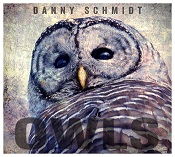 It might seem like a really obvious statement but this album is all about the songs. What it isn’t about is overblown production techniques, flashy solos or drums like cannons. It’s a group of musicians playing live in the studio, trying to get to the heart of eleven songs without bludgeoning the songs into submission. Danny Schmidt is a songwriter from Austin, Texas who fits perfectly into the seventies singer-songwriter mould (often used as a lazy comparison, but this time it’s absolutely spot on) with hints of Leonard Cohen, Neil Young and perhaps even Jackson Browne. On “Owls” (his seventh studio album), his band of Mike Meadows (drums), Andrew Pressman (bass), David Goodrich (electric guitars), Lloyd Maines (lap steel) and Carrie Elkins and Daniel Thomas Phipps (backing vocals) provide a backdrop that ranges from the ethereal, Mexican-accented “Girl with Lantern Eyes” through the Dylan-era Band of “The Guns and the Crazy Ones” to the moody, foreboding and doom-laden “Paper Cranes”. There’s even a bit of a rock ‘n’ roll flavour to the environmental anthem “Soon the Earth Shall Swallow”.
It might seem like a really obvious statement but this album is all about the songs. What it isn’t about is overblown production techniques, flashy solos or drums like cannons. It’s a group of musicians playing live in the studio, trying to get to the heart of eleven songs without bludgeoning the songs into submission. Danny Schmidt is a songwriter from Austin, Texas who fits perfectly into the seventies singer-songwriter mould (often used as a lazy comparison, but this time it’s absolutely spot on) with hints of Leonard Cohen, Neil Young and perhaps even Jackson Browne. On “Owls” (his seventh studio album), his band of Mike Meadows (drums), Andrew Pressman (bass), David Goodrich (electric guitars), Lloyd Maines (lap steel) and Carrie Elkins and Daniel Thomas Phipps (backing vocals) provide a backdrop that ranges from the ethereal, Mexican-accented “Girl with Lantern Eyes” through the Dylan-era Band of “The Guns and the Crazy Ones” to the moody, foreboding and doom-laden “Paper Cranes”. There’s even a bit of a rock ‘n’ roll flavour to the environmental anthem “Soon the Earth Shall Swallow”.
Lyrically, “Owls” is an album that’s worth digging into because not everything reveals itself at the first listen; Danny Schmidt makes extensive use of parable, metaphor and intricate rhyming schemes in his quest to convey his insights, which range from the political concerns of “The Guns and the Crazy Ones” and “Soon the Earth will Swallow” to the very personal “Girl with Lantern Eyes” and “Cry on the Flowers”. These songs will make you sad and make you angry; they might even make you think.
And this is where we get to the really subjective bit. While Danny’s fragile tenor works really well most of the time, conveying emotion and fragility, there are times when the vibrato becomes a distraction from rather than an enhancement to the song. I know some of you might like this, and I’m not saying you’re wrong, but it’s a bit overdone for my taste. Otherwise it’s a bunch of great songs on interesting lyrical themes played tastefully by a great band providing frameworks which enhance the power of the songs.
Out Monday May 18 on Live Once Records (LORCD09).
 OK, so it’s Shoreditch on a Friday night. Normally I would rather eat my own body weight in guitarists’ nail clippings than visit a Shoreditch venue on a Friday night but, in this case, I’m making an exception because the venue and the artist are a little bit special. Rich Mix is a charity and social enterprise comprising a cinema, performance space and food outlet in a building which at one time was a garment factory (when we made garments in the UK). John Fairhurst is a bit special as well; his style is predominantly blues, but don’t expect third or fourth generation, ironed-out gutless blues because this guy taps into the feel of the original mid-twentieth century originals with a little side order of Indian classical tradition and some Hendrix and Neil Young for seasoning. His songs are featured in two films to be released in 2015, “The Beat Beneath my Feet” and the Scorsese-produced “Tomorrow” and his latest album “Saltwater” (highly recommended by MusicRiot) was released in late 2014. So we’re looking forward to this one.
OK, so it’s Shoreditch on a Friday night. Normally I would rather eat my own body weight in guitarists’ nail clippings than visit a Shoreditch venue on a Friday night but, in this case, I’m making an exception because the venue and the artist are a little bit special. Rich Mix is a charity and social enterprise comprising a cinema, performance space and food outlet in a building which at one time was a garment factory (when we made garments in the UK). John Fairhurst is a bit special as well; his style is predominantly blues, but don’t expect third or fourth generation, ironed-out gutless blues because this guy taps into the feel of the original mid-twentieth century originals with a little side order of Indian classical tradition and some Hendrix and Neil Young for seasoning. His songs are featured in two films to be released in 2015, “The Beat Beneath my Feet” and the Scorsese-produced “Tomorrow” and his latest album “Saltwater” (highly recommended by MusicRiot) was released in late 2014. So we’re looking forward to this one.
To start up the evening, DJ Chris Tofu warps and bends blues with electronica and samples to build up the atmosphere before the John Fairhurst Band really kickstarts the event. The “Saltwater” album has some fairly big productions, but the live set is a power-trio affair delivered by John, Pete Episcopo (bass) and Toby Murray (drums). While the focus is always on John Fairhurst’s playing and vocals, this set-up only works if the rhythm section is at the top of their game and Pete and Toby certainly don’t disappoint, providing a solid foundation for the songs and John’s extended solos. The set leans heavily on “Saltwater” material, featuring the Mississippi John Hurt classic “Pay Day”, the Hendrix-inspired “I’m Coming Home” and an astonishingly powerful version of the album’s title song to close the set. John Fairhurst’s playing is raw, loud, phasers-set-to-stun blues; it’s not for the faint-hearted 70s-era Clapton and Joe Bonamassa followers, but it’s a glorious earthy noise and the quality of the playing is stunning. I’ll certainly be having more of that later in the year.
As a bonus (well, this is part of the London Remixed Festival), the final live set of the evening is a collaboration between producer and live remixer Reverend Rockwell, John Fairhurst and Boxcar Joe Strouzer. You can’t argue with the performances and it’s an interesting experiment, but the programmed beats really aren’t a match for three great musicians playing together as a unit. Nothing wrong with it, but it just wasn’t the highlight of the night.
Things are looking good for John Fairhurst this year. He has a newish album to promote and, on the evidence of tonight, he’s going to win new fans every time he plays. The fact that his music is featured in a couple of new films as well is probably more valuable than radio plays in the current climate; I’m really hoping that things work out for him.
And how do I feel about Shoreditch now? Well, it would be great if it was all like Rich Mix, with a diverse audience and staff that make you feel that they actually like having you in their venue. It makes a huge difference to the entertainment on offer and the people who pay to see it when profit isn’t the only reason for opening the doors on a Friday evening. Fair play to Rich Mix.
Click here to see some of our great photos from the gig.
Please tell me it hasn’t come round again already; drunks on public transport, pubs packed with once-a-year drinkers and a demand from MusicRiot to cobble something together for their inane end of year feature. Damn, Christmas again and I hate Christmas unless I can sack a widow on Christmas Eve. But wait, I can see a chink of gloom poking through the bright lights; it looks like John Fogerty and Creedence Clearwater Revisited are opening legal hostilities again, so I think a festive five music lawsuits is about as much fun as I can hope for.
The man in the lumberjack shirt and his CCR ex-buddies are kicking legal lumps out of each other again and nobody really knows what it’s all about, but there are plenty of lawyers involved and onstage pronouncements and press conferences and a whole flamin’ media circus. Just bear this in mind guys; whoever wins, all the lawyers get paid.
But that’s not the most interesting lawsuit John Fogerty has been involved in, oh no. He sold the rights to his songs to his former label Fantasy (headed by the infamous Saul Zaentz) to escape from label (don’t try that one at home boys and girls) and go solo. So, Mr Fogerty gets a bunch of songs together and releases the album “Centerfield”. Happy ending; not quite. The litigious Mr Zaentz sues on the grounds that the album’s opening song, “The Old Man down the Road” plagiarises a Creedence song, “Run Through the Jungle”, which Zaentz holds the copyright for. He wasn’t too chuffed about the song “Zanz Kant Danz” (later changed to “Vanz Kant Danz”) either. So what could be more stupid than suing someone (unsuccessfully) for copying their own song?
Well, David Geffen had a pretty good shot at it in 1983 with Neil Young when he sued him for not sounding like his previous records. After signing one of the most contrary artists in rock (or maybe just a guy who follows his own artistic vision), he decided, after three albums he didn’t like, to sue Shakey for submitting ‘uncharacteristic’ music for release. Maybe it was a bit of a coincidence that the albums weren’t selling. You have to wonder where David Geffen had been living during the seventies if he hadn’t realised that Neil Young didn’t give a stuff about following commercial trends. They eventually kissed and made up and Shakey went back to his spiritual home at Reprise records.
So that’s one case of a label suing an artist for sounding too much like themselves and another case of a label suing an artist for not sounding like themselves. Where else can the stupidity go? Well, back in time a decade or so.
After the Beatles, the quiet one was quickly out of the blocks with the triple album “All Things Must Pass” and the single “My Sweet Lord”. Three weeks after the release of the single, George was hit with a lawsuit alleging that the single plagiarised the Chiffons single, “He’s So Fine” (big in the US, not so big in the UK). It took five years for the case to come to court and George was found guilty of “subconscious plagiarism”, which cost him over half a million dollars. What you have to ask is how come no-on spotted this similarity? “All Things Must Pass” was co-produced by Phil Spector, who was very much part of the American teen scene in 1963 when “He’s So Fine” was a hit. It’s hard to believe he couldn’t spot such an obvious similarity. So, how many more ways could lawyers invent to make money out of the music business. How about “Where there’s blame there’s a claim”?
Jumping back to the eighties again, in 1988 the parents of a teenage fan tried to accuse Ozzy Osbourne of causing the death of their son, claiming that hidden lyrics in “Suicide Solution” had caused their son to take his own life; the suit was dismissed but it didn’t mean that the suicide blame game was over. In 1990, Judas Priest were taken to court by the parents of two teenagers who, after a drugs and alcohol binge, attempted a suicide pact. It’s interesting that no-one was trying to sue any brewers, distillers or dealers for their part in the events. Just ask yourself again who benefitted from these legal cases; I’ll give you a clue, it wasn’t the parents or the bands. Ok, it’s Christmas, let’s try to end on a slightly happy note.
It all started off so well; a bunch of school friends got together and formed a band in the seventies. The band caught the New Romantic zeitgeist with their first single in 1980 and everything was looking good; who needed lawyers and contracts? Well, in this case it might have been a good idea (I never said I had to be consistent) because any memories of verbal agreements vanished after the band became famous. In 1990, Tony Hadley, Steve Norman and John Keeble sued for a share of the booty, claiming that their contributions and a verbal agreement entitled them to a twelfth of the royalties. The case was dismissed and the non-Kemp Spandaus faced huge legal bills, but that wasn’t the end of the affair.
In 2009, the guys resolved their legal issues and got back together to tour again as Spandau Ballet; well, it is Christmas and we should have a happy ending really. There’s a lesson there as well; at this time of year, everyone goes to the pub and maybe that’s what the Spandaus and all of the other people mentioned here should have done. Forget all of the lawyers, go and have a few beers and sort all of your problems out.
Merry Xmas.
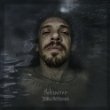 If you happen to have dipped a toe in the pool that is the British blues scene recently, you may have noticed that there are some very snappy critters swimming there waiting for the unwary. As with any scene that’s out of the mainstream, it’s inevitable that cliques develop, a fact that isn’t helped by too many performers chasing too few fans. It’s a classic supply and demand situation. As well as reducing the cash available to performers, it creates a situation where greed and selfishness seem to be excusable and some of those critters in that pool are piranhas. You can hear accusations of nepotism, award-rigging and other bits of nastiness, but the worst thing you can do is to question someone’s authenticity, which is ironic given that the players who are currently really successful are imitating the players from the 60s and 70s who imitated the original blues artists from the 30s and 40s.
If you happen to have dipped a toe in the pool that is the British blues scene recently, you may have noticed that there are some very snappy critters swimming there waiting for the unwary. As with any scene that’s out of the mainstream, it’s inevitable that cliques develop, a fact that isn’t helped by too many performers chasing too few fans. It’s a classic supply and demand situation. As well as reducing the cash available to performers, it creates a situation where greed and selfishness seem to be excusable and some of those critters in that pool are piranhas. You can hear accusations of nepotism, award-rigging and other bits of nastiness, but the worst thing you can do is to question someone’s authenticity, which is ironic given that the players who are currently really successful are imitating the players from the 60s and 70s who imitated the original blues artists from the 30s and 40s.
Ok, so here’s where that was all heading; I’ve been listening to an album by John Fairhurst. The album’s called “Saltwater” and it’s not full of tasteful imitations of Clapton playing “Further on Up the Road” or “Key to the Highway”; the inspiration here comes from Howlin’ Wolf, Muddy Waters, Little Walter and many others. The smoothness has been filtered out and this goes back to the raw earthiness of early country blues and Chicago electric blues.
John Fairhurst is originally from Wigan; he now lives in Bristol and recorded this album in Bristol and London with the help of Toby Murray (drums), Joe Strouzer (harmonica and vocals), Emma Divine (vocals), Tim Loudon (bass), Luke Barter (bass), Jago Whitehead (drums & percussion), Phil Jewson (piano), Saul Wodak (guitar effects) and Alex Beitzke (bass). I have a little confession to make about the album; on the first listen, I was halfway through before I actually started to get it (during the guitar solo on “I’m Coming Home”, actually). I blame it on the previous review I did, which was a very cleanly-produced singer-songwriter and it took a while to move from that to the over-driven guitar, wailing harmonica and Tom-Waits-dukes-it-out-with-Mark-Lanegan vocals. So let’s go back to the start.
The two opening songs, “Breakdown” and “Who You Fooling” get things off to a raucous start with plenty of amped-up slide and harmonica to get things rolling before the album’s only cover, the Mississippi John Hurt song “Pay Day”, which is much gentler, using the old country blues devices of repeated lines and call and response with the help of the Dean Street Choir. There’s even a sneaky little Eric Clapton reference at the end. “More More More” and “Time Goes By” are rooted in the rural, country blues tradition, the first having a UK skiffle feel while “Time Goes By” could be Tom Waits with the badly-tuned pub piano accompaniment.
You couldn’t really describe “I’m Coming Home” as blues; it’s a mutant Jimi Hendrix/Neil Young hybrid with “Voodoo Chile”-style riff and fill playing in the verses and a Shakey-style solo from the “American Stars and Bars” era. It’s the first of the album’s epic pieces. “No Shelter” is another elemental piece built around a simple (but loud) guitar riff and a reasonably good choice for the album’s first single while “Black Cat” is pure Muddy Waters; it’s a straight-ahead twelve-bar with belting harmonica and that always sounds good to me. So, more of the same to finish the album off?
No way; the penultimate song, written by the whole band, is “Dance in the Pines”, a mad surf-punk piece which splices DNA from The Cramps, Dick Dale and The Ventures. It’s off the wall and it’s brilliant. The album’s closer and title track, “Saltwater” is the magnum opus and absolutely has to be the last track; it wouldn’t be as effective anywhere else on the album. The song, which is a restyling of the Robert Johnson “Crossroads” story substituting the ocean for Clarksdale, has the singer refusing to shake hands with The Devil. It’s an epic which starts with acoustic guitar and vocal (slipping into a Wigan accent) which builds through a rural bluegrass-tinged to a kitchen-sink finale featuring Emma Divine delivering a vocal which easily equals Clare Torry’s famous performance on “Great Gig in the Sky”. And it’s the last track on the album because you can’t follow that; job done.
If you’re sick of hearing second and third generation blues revivalists recycling smooth guitar licks and bland vocals (no, I’m not naming names) then this could be just the album for you; don’t file under easy listening.
Out now (JF005).
AM – Just looking around Leigh as an outsider, it always seems to have had a bit of an artistic vibe to it; do you get that?
PB – I’m torn on this idea; if you asked me where I would love to have lived it would probably be Greenwich Village but I’m not sure that that’s a good thing. You sometimes come from hick towns and you get the mavericks and the big fish in little pools but I’m not really sure that it matters at the end of the day. Obviously New York is a great residence simply because so many great writers came from there but if Lou Reed was born in Leigh-on-Sea what would he have written about?
AM – There’s no CBGBs here is there?
PB – Well there isn’t, but it would have been interesting, and vice versa; you get parochial writers who, well, what would they have done if they’d gone to town? I’m not sure it’s important; it’s certainly relevant, where you come from and where you write about. I don’t think it’s a prerequisite of something good. You can get blood out of a stone; you can, you’ve just got to try hard. Sometimes you’re swamped; now, having written from a local area that isn’t particularly bohemian, if I now went to New York, I’d probably overwrite everything and it would just be a mass of input and no way of filtering it. Which would be great; I’d love to do it if anyone’s got an apartment in New York.
AM – And that kind of leads in to “Dunfearing…”, which is the first part of a trilogy.
PB – I’m fond of these things; I get a lot of stick for it.
AM – It’s obvious that that there’s a tremendous sense of place in it. It’s a very West Country thing.
PB – The rest of the trilogy won’t be. You were probably the only person that picked up on the idea of approaching America as the only possible escape after the end of England; the only place you can go. That’s developing a little bit and the other two parts of the trilogy are written and I’m sorting out the third one but it’s more about how you escape the idea of getting old and the only way to do it is to reinvent a youth, which never really works and the idea of America is that it’s supposed to be the land of eternal youth no matter what age you go, so there’s a cynical angle to it as well but I hope that it’s more hope than cynicism: pragmatism.
AM – Do you think that the way the music business has gone over the last twenty years has allowed people like you to do what you want to do?
PB – No, I don’t. I actually think the music business is poorer for what’s happened to it. I would rather be struggling to sign to Warner Brothers, in a way. There’s a philosophy now that anyone can do anything they like, they can record it in their bedroom and make an album, which is fine, because the punk ethos is fine, but there is a difference. Yes, someone could thrash away at three chords and sing ‘I hate Margaret Thatcher’ and be played on John Peel; fabulous, but that was it. Now there seems to be a corporate mentality attached to do-it-yourself.
AM – It’s so difficult now, with music, to actually make any money.
PB – Which is essentially what you have to do. There were people around punk who never thought they’d make any money and a lot of them didn’t but they thought they’d got a chance of maybe an album and that’s it and they’re now working in IT or whatever and that’s what they wanted. The problem is, while you’ve got that ethos is that if people are taking it seriously, then they get lumped in with it and it’s ‘Oh, you’re still here, are you?’ and now it’s even worse because nothing’s taken seriously. To include lyrics with an album now is seen as pretentious.
AM – And yet, to me, “Dunfearing…” was actually a very nice packaging job, but we shouldn’t be talking about packaging, really.
PB – I would have agreed with you a while back, but now I go back to albums I’ve listened to and loved and I think these are beautiful things, regardless of the music, I would want this album; as a piece of art, as a whole.
AM – I’m accused of fetishing the whole thing; going for the vinyl and the nice gatefold sleeve…
PB – My mantra for that is accused by whom? I’m a great fan of the Oscar Wilde saying ‘The show was a success, the audience was a failure’; it depends who’s criticising.
AM – It’s a completely different listening experience now; I sometimes stick review copies on a little MP3 player and you have to pull this thing out of your pocket to check the track title.
PB – This is the first album I’ve done with a record company as opposed to putting it out on my own and Phil’s great (Phil Penman of Drumfire Records) but if you want tracks for radio, or the hit track (not the hit single, that never happens any more), I just think ‘I don’t want one’. That’s why I hate the download culture so much; ‘I’ve listened to this album twice, these two are obviously the best songs so therefore I’ll stick them next to my favourite Kylie song on my iPod’. Well, fuck that, what are you going to do with Lou Reed and “Berlin”; take a couple of tracks from that and stick it next to Miley Cyrus. Would we do it with art? ‘I think I like that third sunflower but I think it would look nice in the Velasquez, so I’ll shift it over and Photoshop it in to that’. There’d be outrage.
AM – I think Pink Floyd were entirely right…
PB – There has to be a first time for everything
AM – When they blocked the downloading of single tracks from “Dark Side of the Moon”.
PB – Funny you should say that, but it occurred to me the other day that if I blended my music in so that it tinkled out on one track and tinkled in on the next, nobody would be able to download it; don’t tempt me.
AM – I can’t do it, I can’t buy in to the download thing; I’d rather pay full whack…
PB – And be wrong. I’ve spent ten quid on an album and it’s been bullshit apart from the track I liked. That’s what you get; you can buy a sofa for four hundred quid and the leg falls off and that’s life, get used to it.
AM – So you’re going to be recording the second album in the trilogy soon.
PB – This year we’re doing the second. The third album is very ephemeral, but I want to get that done because I want to get on to the next phase. There’s a bunch of folkie songs that I’ve written and I want to get them out of the way, so I’ll do a double folkie album next year, but I might get two albums out before then. I’ll have to put out one on my own label because I don’t expect Drumfire to do it. It’s weird really; if Bob Dylan was still fabulously creative, I’d want an album from him every month. There’s an idea that you can only put an album out once every year or two years but The Fall make an album every twelve minutes; some of it’s all right, some of it’s not but I’d rather have that.
AM – That’s just reminded of someone that I know you admire, Jackie Leven, who would do exactly the same thing.
PB – That’s what I’m aiming for actually. Jackie recorded what he called his platinum albums for Cooking Vinyl. Someone would give me a tape from a live gig I did somewhere and I’d love to release that so and that’s why I kept my own label. I can put stuff out that’s not a big production number but it’s a bunch of songs that hang together well and say ‘Have a listen to this’ and Jackie did that really well. Other than that, I’ve got a good setup for recording that I use with a few people and Mark Elliott especially and it’s easy to do. We get the band together, rehearse it and record it. “Mercenary Thoughts of a Lush”; we went up to London and recorded the whole thing in two days. Bit of punk spirit and some people say it sounds like it but that’s what it needed to be with that bunch of songs. We could never have done that with “Dunfearing…”because it needed a bit of time but there should be room to do that.
Neil Young would be cruising about, just out for a drive and he’d drive down to New Orleans and hear a bit of music and end up writing ten songs and think ‘I need to record this’, so he’d phone up local musicians, get into the studio, record them and send them to his recording company and they’ll say ‘Well you only had an album out a month ago, you can’t do this’, and I’m with him, why not. If you love Neil Young, or whoever, and you hear that a month after you’ve paid out ten pounds for his new album, he’s got another one out, I think I’d find ten quid but apparently it’s an unwritten law that you can’t do this.
AM – What I find quite interesting is that more and more bands are rehearsing stuff, getting the songs right, going into the studio and recording as a band rather than doing separate tracks.
PB – I don’t exactly do that. I like the idea but I find it takes a lot more time because you have to do a lot more takes but certainly, with the next album, it’ll be a lot looser; it’s nothing like “Dunfearing..”. It loosely follows on from that album; the third of the trilogy ties it all together. The second one will be a bit ‘what’s this?’, but it’ll make sense with the third one. I’m already on to next year with the folkie album, trying to get into Pentangle now, God help me.
AM – That’s something to look forward to then.
PB – Well that’ll be a double album because there’s a lot of songs there. Just songs that I’ve written in a folkie/country style that don’t need a lot of embellishment so they’re easier to record. There’s a lot of them, so let’s stick them out on a double album, which no-one does any more; gatefold sleeve coming up here.
AM – I bought the Ben Watt album, “Hendra” on vinyl, a few weeks ago and that had a nice gatefold sleeve and lovely packaging.
PB – I had a drink with Ben Watt, once; a very polite drink.
AM – It’s a great album and it’s nice to hear that people are still making music in that way.
PB – Well, these Drumfire gigs I’ve been doing, I supported Clive Gregson and my first reaction was ‘Christ, he’s still going’ and Martin Stephenson played there as well (at The Cabbage Patch in Twickenham) and I thought it was great because you don’t to discover that they’re dead or working in Macdonald’s or something; they’re still out there playing and that’s really reassuring. They must love it. They must love and hate it enough to carry on doing it. Any ordinary, sane person would just say ‘I’ve had my shot now’, but the rest of us drink ourselves to death and write songs.
AM – The first time I saw you play was supporting Dean Owens in Clerkenwell at Drumfire gig. I spoke to Dean and he wasn’t happy because the venue was half-empty because they hadn’t used the posters he’d sent to publicise it and that must be incredibly frustrating.
PB – This was the other myth about myth about punk, that you used to have all these gigs going on everywhere. If you had a punk band or a new wave band or a post-punk band, you could probably get a few people to turn up but if it was a solo, forget it, it would be the owner and his dog, and his dog will hate you.
Which brought us neatly back, almost full circle, to Phil’s punk beginnings and the end of the interview.
Phil Burdett’s album, “Dunfearing and the West Country High” was reviewed here earlier this year and ever since that time I’ve been waiting for the chance to sit down and have a chat with Phil about his music (and many other things). We finally managed to meet up in Leigh-on-Sea on typically miserable British Bank Holiday weekend and had a pretty expansive chat over a couple of beers. Now that’s the way to do an interview. We covered a lot of ground, so the interview is being published in parts over the next few days.
AM – So Phil, tell us a bit about how you got to be where you are now, musically and philosophically.
PB – I take it you don’t mean the bus route down here. That’s a very good opening question and I’ll do my best to answer it. Musically I would say it’s incremental; it started off with my brother when I was five years old with a guitar and my brother Mick used to have a record collection and he’d lend me his older albums and he was one of those part-time hippies in the late sixties. He went to the Isle of Wight Festival, credit for that, and he had loads and loads of folk music and blues music which was all I heard. Everyone at school was into glam rock and everything so I used to have endless school parties when I was older (obviously not when I was five; great progressive school that would have been). All I would listen to was John Fahey, John Renbourn and probably a bit of the West Coast Neil Young, Topanga County kind of people, James Taylor and those sort of things. And I thought great, this is what’s in the charts, this pop music, then I got school and it was Marc Bolan which was fabulous; I didn’t quite reject everything of my brother’s but I thought, this is what I’m meant to be listening to so I suppose in the early times it was a mixture of Marc Bolan and John Renbourn and then my brother expanded as well into other things like The Band and Van Morrison. Actually, I saw Van Morrison first, although he will tell you different, but I saw him on the Old Grey Whistle Test when he did the “Too Late to Stop Now” thing and they broadcast the whole thing live when they used to do those things, in those days, and I just thought it was music from another planet; I’d never heard anything like it. He had a string section, he had a horn section, he was doing soul music, he was doing blues music, he was doing folky stuff and I can remember a shift happened in my head and I thought ‘this is what I want to do’, and that’s when I wanted to write songs. Not so much to write songs, ‘but I want to make this noise, not to play “Caravan” or “Brown-Eyed Girl”; I want to make this noise with these people. I want to have a bunch of people like this behind me and I want to make this noise.’
AM – Was it the variety of instruments that drew you to it?
PB – It was and, in retrospect, I was quite pleased with that because it was just such an astonishing surprise sometimes you go along to a gig, and you know two numbers in what you’re going to get, whether you like it or not. I like the idea that suddenly you don’t know what’s going to happen next; this could be a folk song, he could pull an acoustic guitar out, he could pull a set of bagpipes out. It could be anything; it could be heavy metal and I loved the idea of that and people like Captain Beefheart. Frank Zappa took it to extremes but I used to love Zappa and probably all the people I’ve liked since that, I’ve liked because of that gig where you thought that anything was possible. You see it now and it flows and it seems like a very good and expansive band playing but at the time I thought that one minute it was classical music, the next minute it was folk music and that’s what I liked it was the variation that made it a whole; it hung together because of the variation. It was astonishing; I sat up after it and I just didn’t know what to do. I wanted to everything but couldn’t do anything.
AM – You mentioned a couple of the musical mavericks there; is there something in you that taps in to that?
PB – I think it all came from that Van Morrison show. Now, I slag off Van Morrison more than anyone does because I think he’s become an appalling thing, an appalling great lump of Irishman. I would rather go and see, and I don’t say this lightly, I would rather go and see a Van Morrison tribute band now than see Van Morrison because it’s the same thing essentially; I think he’s lost the plot or never had the plot and got lucky. His first four or five albums up to “Veedon Fleece” and a little bit beyond were fantastic but suddenly it all went very wrong. When he was inventive and varied, which was probably before I got in to the idea of lyrics, and that’s evolved more than the music side, he was just purely making music and making sounds for the joy of it; I think Van Morrison expresses that if I don’t care about lyrics, because he’s not the greatest lyricist in the world, it’s perfect. “Astral Weeks”, it’s errant nonsense a lot of it but you couldn’t change a word of it. What the fuck is “Veedon Fleece”? What is a Veedon Fleece? But you wouldn’t want it any other way. I’m not religious, I’m an atheist, but I believe that; I want to go and search for the Veedon Fleece when I’m hearing that, so it works. It was that combination of trust in him, you believed in what he did, and his voice, which was peerless at that time. I used to try to do the Van Morrison bit with a bit of Bob Dylan thrown in. My brother tried to get me into Bob Dylan more and I said that Van Morrison was the man, and then suddenly the thing that changed it was Bob Dylan and Robbie Robertson. I heard The Band’s first album and, for no reason whatsoever, I just loved and then I realised that the reason I loved it was because of these words. It’s not the way they were being sung, although that was fabulous, it was these words and I didn’t know what they meant, but they sounded like they meant something and it was probably a combination of those things; Dylan, the Band and Van Morrison.
AM – I was going to come to this a bit later, but the first time I listened to “Dunfearing and the West Country High” I pulled the lyric booklet out and it was obvious that there were an awful lot of lyrics there.
PB – I get hell from record companies for that, especially from the people that type the lyrics out.
AM – But it was doing that and actually reading the lyrics that I realised you’re obviously a writer who is influenced by poetry as well.
PB – In a way, poetry came before lyrics because I used to like poetry before music. When I first heard music, the lyrics were part of the music, of the sound. They could have been singing anything and in some cases they were. People talk about Nick Drake, but I think Nick Drake’s a terrible lyricist. I’ll get crucified for this, but if his music and his sound wasn’t as good as it is, if musically he was someone like Donovan, then the lyrics aren’t that different; it becomes mystical because of the setting rather than the content.
AM – What struck me as well is that the lyrics on “Dunfearing…” actually repay careful listening.
PB – That’s what you want. That’s the reason I want to write short stories, I want to write books, I want to write everything, but I’m writing this music because it’s the only thing I can see, outside of opera, that’s taken seriously (not seriously enough, in my opinion) because it’s a combination of music and lyrics that would not work separately. I’m not a great lover of the idea that lyrics are poetry; I think lyrics are lyrics but they can be good lyrics. Poetry’s another thing; poetry should be able to stand alone. If you have as good a lyric as “Idiot Wind” and Bob Dylan wanted to do that as a poem, I think he would rewrite it, but he shouldn’t rewrite it; it’s got to complement the music.
AM – For the first time in years listening to a new album, I went into sixth form English Literature criticism mode.
PB – My album will be on the curriculum next year; I trust Gove.
AM – You’ve seen the review, it got that reaction because there was so much in there lyrically.
PB – Your review astonished me; my first reaction was that I thought it was a wind-up and that Phil Pavling (described in the sleevenotes as guru and benefactor) had written it or I thought I’d written it and forgotten and posted it to myself. You don’t get that often, you think ‘That’s nice, we’ll use that line for a plug or something’, but this was almost like you knew as much as I did about what was going on, which is very rare.
AM – That was just my natural reaction to the album, really. The other thing was that my wife, who wouldn’t necessarily have chosen to listen to it, being much more into disco, gave it a big thumbs up as well.
PB – My disco album will come a lot later.
And that’s end of part one, more to come very soon, when we get into punk, post-punk and post-post-punk, among other things.
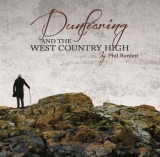 What a great start we’ve had to 2014. We’ve already reviewed some cracking albums in various genres and now we’ve got another. “Dunfearing and the West Country High” is Phil Burdett’s first album to be released on Twickenham-based Drumfire Records and it’s very, very good. If you’ve seen Phil Burdett play live, you’ll know that he has a powerful, rich baritone voice and is an accomplished acoustic guitar player. He learned to play at the age of six, was in a pre-Depeche Mode band with Martin Gore and has pursued a winding and sometimes messy path through the music scene in the south-east of England ever since.
What a great start we’ve had to 2014. We’ve already reviewed some cracking albums in various genres and now we’ve got another. “Dunfearing and the West Country High” is Phil Burdett’s first album to be released on Twickenham-based Drumfire Records and it’s very, very good. If you’ve seen Phil Burdett play live, you’ll know that he has a powerful, rich baritone voice and is an accomplished acoustic guitar player. He learned to play at the age of six, was in a pre-Depeche Mode band with Martin Gore and has pursued a winding and sometimes messy path through the music scene in the south-east of England ever since.
It’s obvious from the first listen that Phil isn’t just a songwriter; he’s a true poet. You can find any number of musical influences listed in previous reviews but you should probably add James Joyce and Dylan Thomas to that list. A quick word of advice here, don’t download this album, buy the CD; the packaging, designed by Fish Inton, is gorgeous and contains a booklet full of evocative photos and all of the lyrics.
It’s usually a pretty easy job to explain the subject of a song, but it can be a real challenge on “Dunfearing…” as Phil slips sinuously between the mundane and mystical. Even a song as seemingly grounded as “Small Talk at Sullivan’s Diner” descends quickly from the simple narrative to a deeper and darker examination of tortured souls struggling to cope with real life. The songs with a clear narrative thread are inspired by the history of Cornwall and the West Country, “Gothic Miner” and “Fate of Pirates”, for example, while “New York City Call” and “Columbus and Hope” emphasise the area’s historical links with the New World. There’s a batch of songs (“First and Last”, “Song of the Lamp”, “See the Sunset Slow and Beckon True”, “Rimbaud’s Ghost, Chapel Street & Union” and “Winter Halls”) which take inspiration from Phil’s recent Cornish sojourn, and the fatalistic “It’s Where ye Have to Go”.
Which leaves the album’s closing song, “Night Horses of the Wireless Road” to take all of these strands and pull them into an epic, mythical, stream of unconsciousness. The entire album is lyrically dense (both in volume and meanings) and the final song typifies this with references to art, music and fables, before moving abruptly into harsh reality with the news of the death of Jackie Leven, to whose memory the album is dedicated. Musically, “Night Horses…”, has echoes of Neil Young with Crazy Horse at their most laid back or maybe even John Martyn at his best. It has the same unsettling, alienating effect as The Afghan Whigs’ 1996 album, “Black Love”, particularly the closer, “Faded”.
I’m not saying this is an easy listen, but it’s worth putting in the effort. You might even have to do a bit of research on phrases like “mise-en-abyme” (you can look it up for yourself) and some of the more obscure references. Phil’s rough-hewn baritone voice and acoustic guitar (with a hint of Johnny Cash at times) are sympathetically supported by John Bennett (guitars), Steve Stott (mandolin/fiddle), Russ Strothard (bass guitar), Jack Corder (drums), Dee Hepburn (piano), Colleen McCarthy (backing vocals), Wag Porter (fiddle) and Mark Elliott (percussion) throughout the album; the playing isn’t particularly showy, but it creates a perfect backdrop for the modern folk and slight country leanings of the songs.
If you want a particularly geeky fact to impress your friends with, there are nearly thirty drinking references in the album’s lyrics, including pub names, drink names and general drinking terms, including one reference to rehab; you can take what you like from that, but I’m guessing that Phil enjoys a beer. This is an album which visits some very dark places, but closes with a heartfelt farewell to a fellow troubadour as part one of the proposed “Secular Mystic Trilogy” closes.
Out Monday March 3rd on Drumfire Records (DRMFR016).
Ok, you weren’t expecting to find Noel Coward here were you? Well, it’s about time you had some proper culture instead of all that pop music nonsense. In the play “Private Lives”, the character Amanda has the memorable line “Extraordinary how potent cheap music is”, which has been quoted virtually everywhere. The broadsheets love to give pop thinkpieces an intellectual feel by throwing this one in, but there’s a whole new slant on it now. Thom Yorke and Nigel Godrich (and a few others) are having hissy fits about the financial returns from Spotify, but they’re missing the real target by a country mile.
The problem isn’t that consumers are only willing to pay a small amount for music. Most of the traditional teenage pop/rock/r’n’b (add your own genre as applicable) music consumers have grown up with the assumption that music is free if you know where to look for it, so why would you ever pay for it? Things used to be really simple; you heard a song on the radio (or in a club) or read about it in the NME and went to your local music shop and bought it on 7” vinyl, 12” vinyl, cassette or CD, depending on your age. The record company took a huge slice of the profit, but the artist got paid, particularly if they had a good lawyer and they wrote the song. The music business panicked in the seventies over home taping, but still pushed the development of digital technology in the eighties not realising they were opening a can of particularly fat, juicy worms.
Digital recording and processing; you can make and keep perfect copies of everything and there’s no degradation no matter how many generations of copies you make. No more tapes or master discs to worry about storing (or having stolen by the band when they don’t like the mix or don’t think their piece of the action is big enough). And then the realisation dawned that if Sony (other labels are available) could make perfect copies, then it was only a matter of time before some under-nourished geek in a bedroom in Dollis Hill worked out how to crack the code and make their own perfect copy, which they generously circulated around the world with that new internet thing. And they were actually complicit in the process when they got behind recordable formats such as Minidisc and Digital Compact Cassette (ask your dad, kids).
Of course it was easy to do a quick and dirty remaster for CD on all of your back catalogue and get the punters to pay to hear them again with a clarity you promised they wouldn’t believe. Have you heard some of those early remasters? Some of them are actually painful to listen to, but we bought into it and duplicated our vinyl with CDs. But the physical CD market was quite healthy because the audio files were massive and transfer speeds on the internet were painfully slow. So, there would only be a problem if someone worked out a way of speeding up the internet and making audio files much smaller; that wasn’t going to happen, was it? MP3 and broadband sorted that one out with a little help from those lovely people at Apple and soon we were downloading MP3s as well.
Of course the music industry tried to defend itself with copyright protection systems (which didn’t work) and litigation (which also didn’t work), so we’re in a position now where creativity has virtually no value. Bands are being asked to pay to play in venues, musicians are being asked for permission to use their work in films for free (for the exposure value) and music writers and photographers are working for peanuts. It couldn’t get any worse, could it?
Of course it could. In a typical “four legs good, two legs better” move, the music industry is showing an interest in Neil Young’s PONO full-fat, uncompressed music delivery system (which Shakey’s been trying to flog for years now, with no success) after years of squeezing sound files as small as you can to get them to sound good on an MP3 player or a phone. It’s CD all over again; if this system ever makes it to the market, then it’s an opportunity to persuade the small market sector that still believes in paying for music to shell out for their favourite albums yet again. But we won’t get fooled again, will we?


